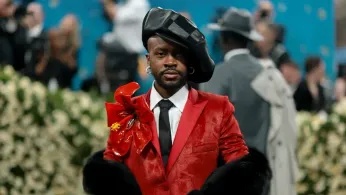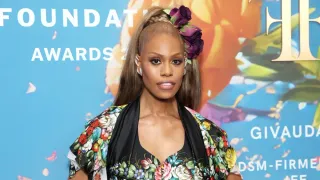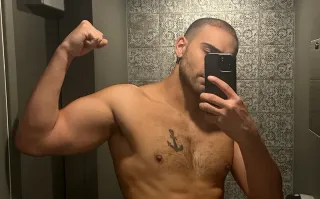
Jul 23
From Jamaica to the Runway: Edvin Thompson and Theophilio Redefine Queer Fashion
READ TIME: 3 MIN.
In an industry long inspired by LGBTQ+ communities, there has often been a disconnect between influence and representation. Today, designers like Edvin Thompson are closing that gap, not only by creating clothes for queer people, but by centering their lived experience within the very fabric of their work .
Edvin Thompson, the Jamaican-American creative behind Theophilio, has quickly become one of the most talked-about designers in New York. Since launching Theophilio in 2020, Thompson has earned recognition for his ability to fuse the energy of Brooklyn’s streets with the vibrant traditions of Jamaican dancehall, all while foregrounding queer joy, resilience, and community .
What sets Theophilio apart is its unapologetic celebration of intersectionality. Thompson’s collections are a love letter to his roots: bold color palettes nod to Jamaica’s flag, while mesh fabrics, sculpted silhouettes, and unexpected layering evoke both island nightlife and the improvisational spirit of queer style. Pieces often reference family, migration, and the search for belonging—a narrative familiar to many LGBTQ+ people of color .
Queer culture’s influence is woven throughout each look, from the casting of gender-diverse models to the way garments challenge and expand traditional ideas of masculinity and femininity. Thompson has spoken publicly about the importance of creating a space where queer and trans Black and Caribbean people can see themselves reflected—not just on the runway, but in the creative process itself .
For Thompson, fashion is inseparable from ritual and gathering. Theophilio’s shows have become events rooted in community: models walk to the pulse of reggae and dancehall, and backstages are filled with friends, artists, and activists from across the queer diaspora. In these spaces, clothing becomes more than self-expression—it is a tool for affirmation, protest, and celebration .
This ethos extends beyond the runway. During Pride Month and throughout the year, Theophilio’s collections are embraced by LGBTQ+ people not only for their style, but for their message. The brand’s signature pieces—like mesh tops in Rastafarian colors or deconstructed denim—have become staple statements at Pride parades and queer nightlife events, signifying both resistance and belonging .
Thompson’s impact is not just aesthetic. His commitment to inclusive casting, ethical production, and authentic storytelling has helped set new standards for what representation in fashion can look like . In an era where rainbow capitalism is frequently critiqued, Theophilio stands out for offering genuine visibility and material support—such as fundraising for organizations like Trans Lifeline, as seen with other queer designers .
Industry observers note that Thompson is part of a larger movement of LGBTQ+ designers—such as MI Leggett of Official Rebrand and Alejandro Gómez Palomo of Palomo Spain—who are redefining the boundaries between gender, art, and identity . However, Theophilio’s particular blend of Caribbean diasporic references and queer narratives gives it a singular voice in the ongoing dialogue about what queer fashion can be.
As queer fashion continues to evolve, Theophilio and Edvin Thompson are poised to play a leading role in shaping its future—not just by dictating trends, but by modeling what it means to create from a place of authenticity, care, and community. For young LGBTQ+ people seeking inspiration, and for an industry striving for deeper inclusion, their work offers both a mirror and a beacon.
In a cultural moment where visibility matters more than ever, Theophilio reminds us that queer fashion is not just about what we wear, but how we live, remember, and imagine together .






